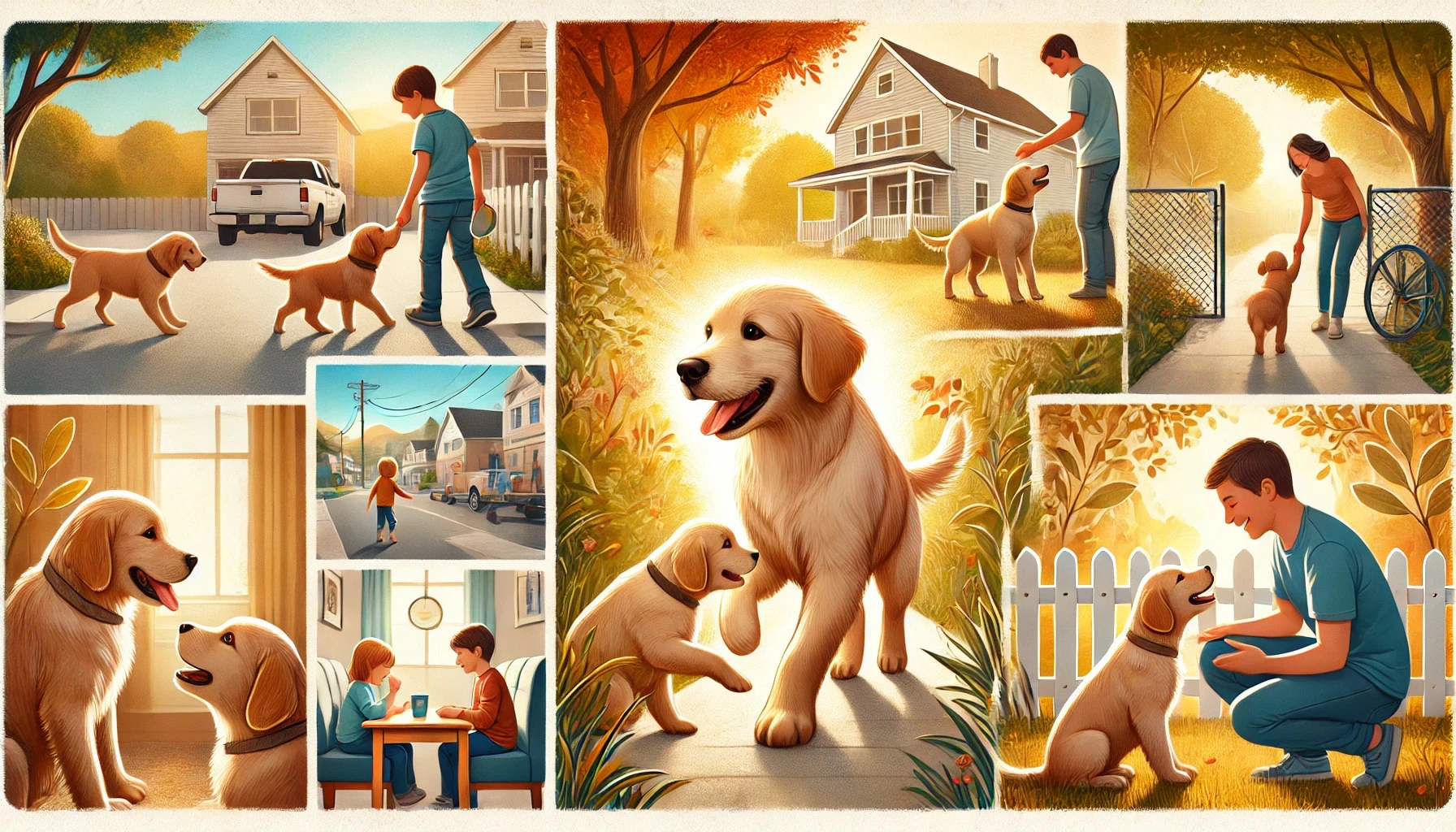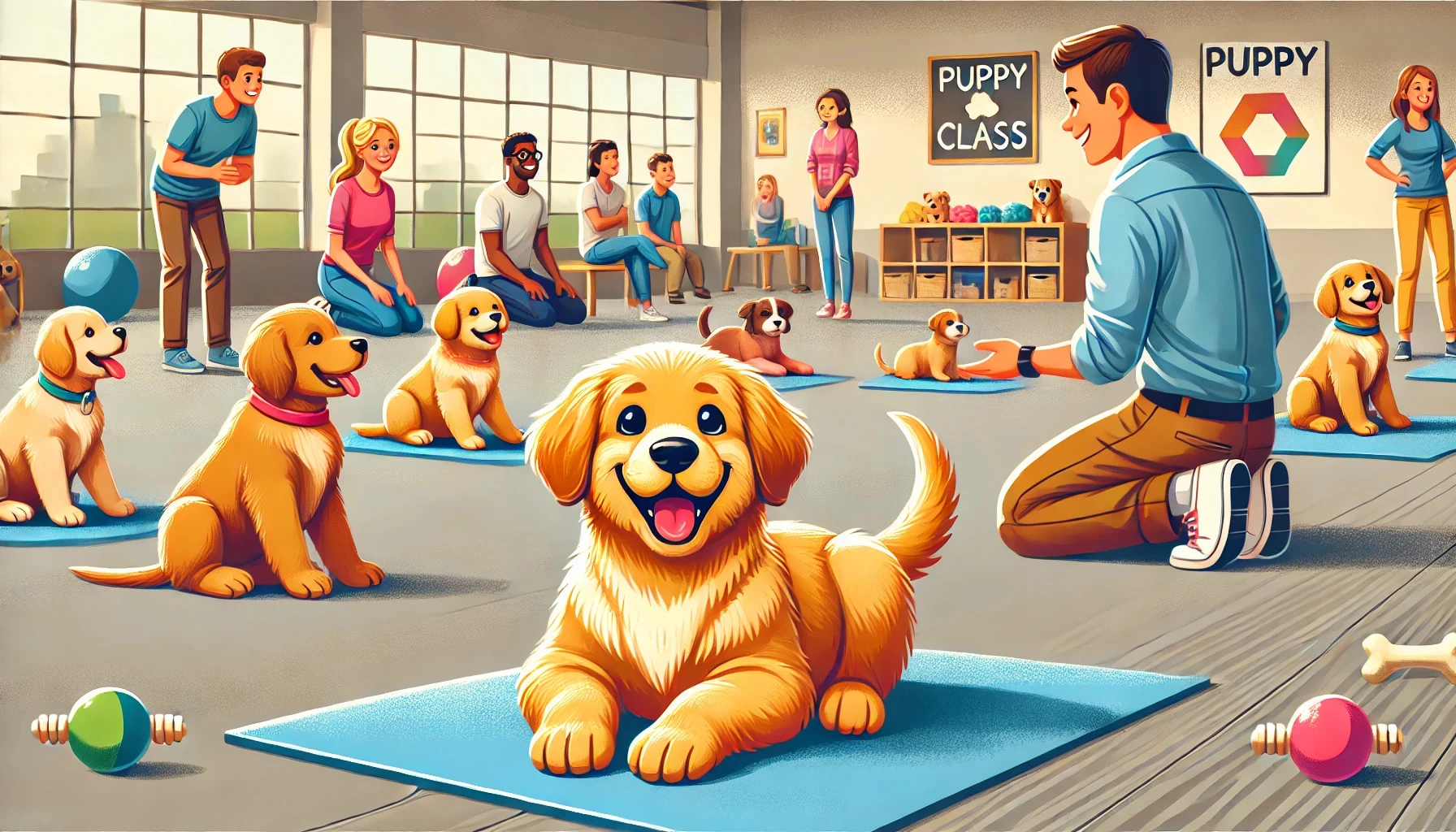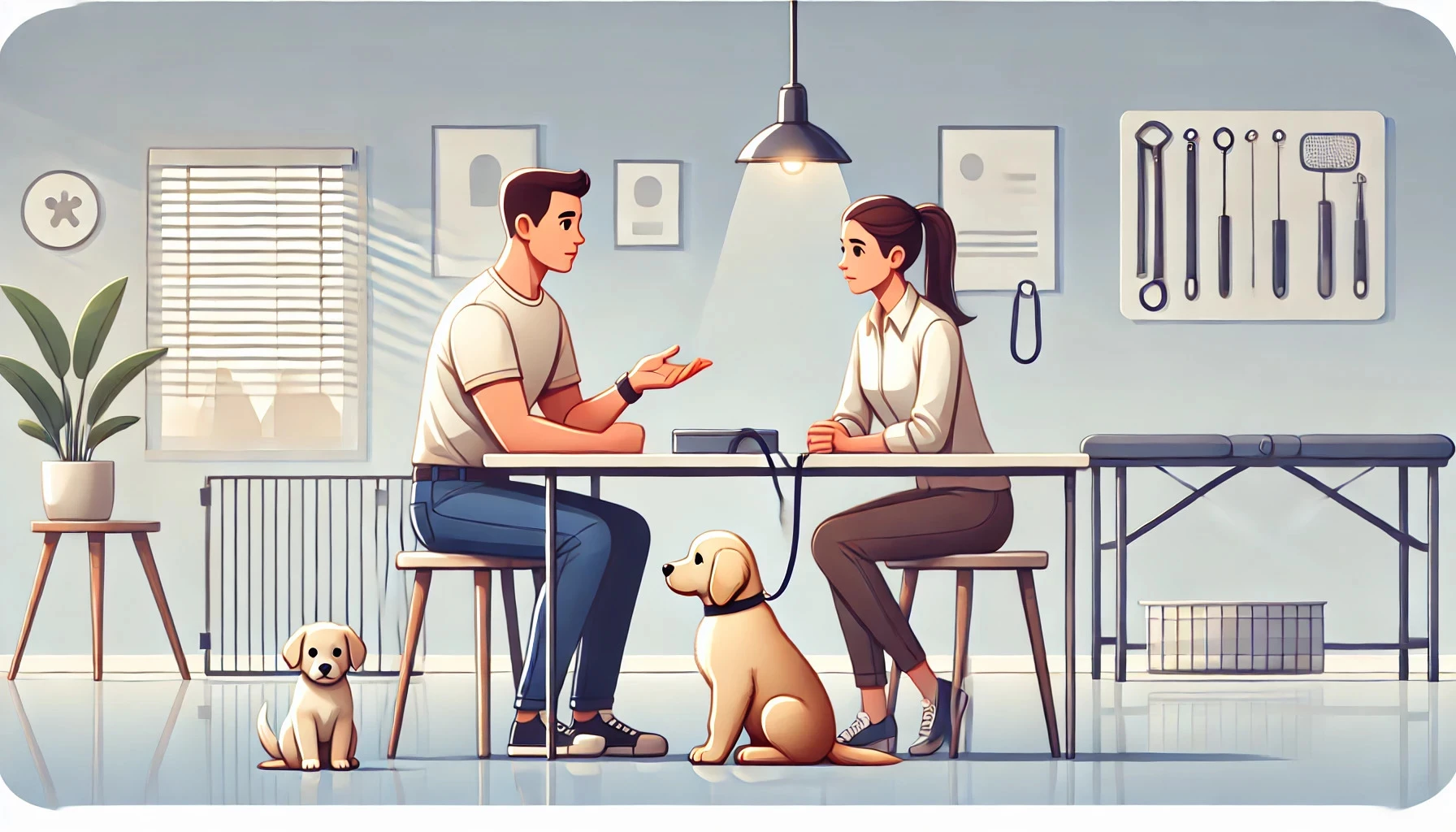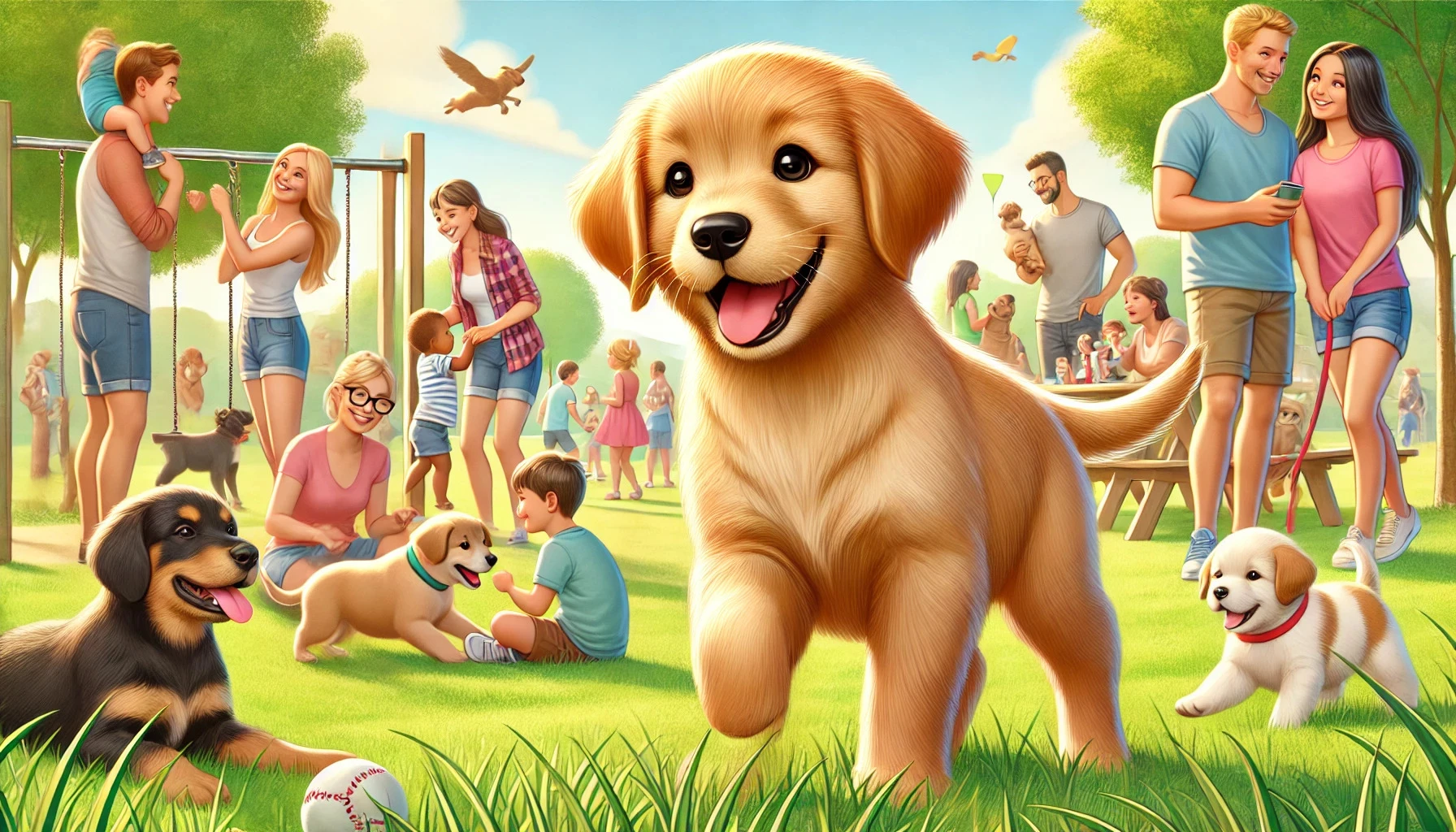On this page
Is socialization critical for a 3-month-old Golden Retriever?
Yes, early socialization helps your Golden Retriever puppy develop into a confident, well-behaved adult dog. At this age, your Golden Retriever is in its formative socialization period, making every interaction crucial for shaping its behavior. Introducing them to new environments, people, and other animals builds their confidence and reduces the risk of fear-based reactions later in life.
Compared to smaller breeds like Chihuahuas, Golden Retrievers have higher energy levels and require frequent interaction to channel their natural friendliness. Alongside proper socialization, their diet should also meet their growing needs, focusing on high-quality protein to support both physical and mental development.
This article explores the best strategies for socializing a 3-month-old Golden Retriever, helping you nurture a happy, adaptable dog.
Struggling with socialization tips? Use Dosty App training tools for expert guidance.
Is socialization more than just introducing your puppy to people?
Yes, it’s a comprehensive process that involves exposing your Golden Retriever to a wide range of environments, sounds, and situations to build positive experiences.
Key Aspects of Socialization:
Human Interaction: Meeting people of all ages and appearances.
Animal Interaction: Safe playtime with dogs and exposure to other animals.
Environment Exploration: Visiting parks, city streets, and quiet areas.
Noise Acclimation: Familiarizing them with common sounds like vacuums and cars.
Dr. Emily Carter, a canine behaviorist, explains, “Socialization is about teaching your puppy to feel safe and confident in the world.”

Should you begin socialization immediately with your 3-month-old Golden Retriever?
Yes, early socialization is vital for your Golden Retriever during their critical developmental window.
Steps to Start Socialization:
Introduce Slowly: Begin with familiar environments and gradually increase exposure.
Use Positive Reinforcement: Reward calm, confident behavior with treats and praise.
Visit Puppy Classes: Controlled settings offer safe interaction with other dogs.
Handle Gently: Touch their paws, ears, and tail to desensitize them to grooming.
Dr. Amanda White advises, “Socialization starts at home. Gentle exposure to new stimuli helps build a solid foundation.”
Can attending Golden Retriever puppy classes make a difference in socialization?
Yes, structured classes provide a safe environment to introduce your Golden Retriever puppy to other dogs and people.
Benefits of Puppy Classes:
Safe Interactions: Professional trainers oversee dog-to-dog interactions.
Training Integration: Combines basic obedience with socialization.
Controlled Environment: Limits exposure to aggressive or unvaccinated dogs.
Dr. Kevin Ross explains, “Puppy classes are an excellent way to ensure your Golden Retriever learns proper social behaviors in a controlled setting.”
For more training tips and recommendations for Golden Retriever Now!

Do Golden Retrievers face specific challenges during socialization?
Yes, while they’re naturally friendly, improper socialization can lead to fear, overexcitement, or leash reactivity.
Socialization Pitfalls to Avoid:
Overexposure: Introducing too many new experiences at once can overwhelm your puppy.
Negative Experiences: Harsh scolding or frightening situations may cause lasting fear.
Inconsistent Training: Lack of routine can confuse your puppy.
Dr. James Lee states, “Avoiding negative experiences during early socialization is crucial for building a confident Golden Retriever.”
Is socialization necessary for a Golden Retriever’s lifelong happiness?
Yes, early socialization is vital for your Golden Retriever during their critical developmental window.
Long-Term Benefits:
Confidence: Comfortable in various situations and environments.
Improved Behavior: Reduced likelihood of destructive habits like chewing or barking.
Stronger Bonds: Builds trust and strengthens your relationship with your dog.
Dr. Laura Bennett explains, “A well-socialized dog is not only easier to manage but also enjoys a richer, more fulfilling life.”
For more tips visit our page Dosty.co.
Is professional help ever necessary for socialization in your Golden Retriever?
Yes, if your Golden Retriever shows signs of fear or aggression, a professional trainer can provide tailored guidance.
Signs You Need a Trainer:
Persistent fear of people or other dogs.
Aggressive behavior during interactions.
Difficulty adjusting to new environments.
Dr. Sarah Bennett advises, “Early intervention with a professional trainer can prevent long-term behavioral issues.”

Conclusion: Socialize Your Golden Retriever With Confidence.
Socializing a 3-month-old Golden Retriever is a rewarding journey that lays the foundation for a happy, well-behaved adult dog. By exposing them to new experiences in a positive and controlled manner, you can nurture their natural friendliness and confidence. Remember, consistent efforts, patience, and guidance are the keys to successful socialization.
Start your Golden Retriever’s socialization journey today with Dosty Petcare App personalized training tools.

